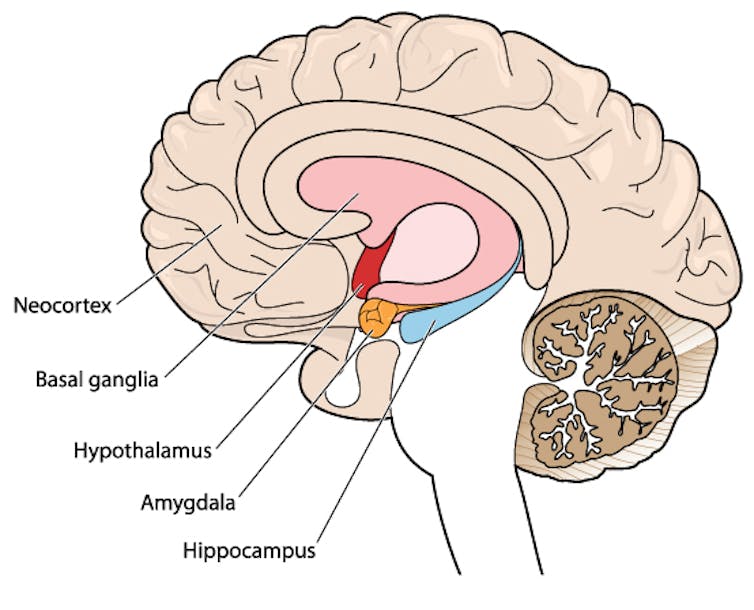Big worries can feel scary and confusing. Sometimes a little worry can feel like a big one too.

Curious Kids is a series for children. If you have a question you’d like an expert to answer, send it to curiouskids@theconversation.edu.au You might also like the podcast Imagine This, a co-production between ABC KIDS listen and The Conversation, based on Curious Kids.
Why do some people worry more than others? – Shifra, age 5, Melbourne.
You might think there are some people who never worry. But that’s not true. We all worry but at different times and about different things. A bit of worrying is normal and healthy.
It’s your brain telling you something helpful. It might be telling you there’s something you need to think more about. We couldn’t get rid of worries even if we really wanted to!
Read more:
Curious Kids: why can’t we do whatever we want?
Why people worry
Some people worry more than others because they’re born that way. Some experts say your genes or personality can make a person more likely to be a worrier. Worries can run in families – maybe mum, dad, your sibling or grandparents could be worriers too.
Worries are actually really common. In your class, there’s a good chance that three or four other kids would know about worries because they’ve got them too. Maybe they’re thinking about a few worries right now.
Worrying has nothing to do with being brave, strong or your character.
Big worries and small worries
Worries can be helpful. There is a part of the brain called the amygdala. It’s not very big and it’s shaped like an almond. It switches on really quickly when it thinks you’re in danger. It’s there to protect you. Its job is to get you ready to run away from any danger.
But worries become a problem when they show up at unexpected times. Sometimes you can’t forget the worry. The worry stays on your mind, and maybe you feel sick in your tummy or have a headache. These worries can turn your brain’s amygdala on, and make it feel like you need to run even when there is no danger around.

Blamb/shuttershock, CC BY
Sometimes people can worry a lot because something in their life is hard.
If you are having a hard time in your life – like an illness, family or school issues, or problems with friends – that can make you feel worried. We could call these big worries.
Big worries can feel scary and confusing. Sometimes a little worry can feel like a big one, too.
Avoiding worries big or small doesn’t help. It can make them worse. But we can ease our big worries into smaller ones so they’re not on our mind all the time.
That way they don’t stop us from doing things or make us feel like we need to run away from danger when there is none there.
What can help with worrying too much?
If you feel like you worry too much, the most important thing you can do is make yourself the boss of your worries. Whether they are big or small, you can try:
- Hot Cocoa Breathing: Pretend you have a mug of hot cocoa in your hands. Smell the warm chocolatey smell for three seconds, hold it for one, blow it cool for three, hold it for one. Repeat three or four times;
- Grounding: Distract yourself from the worry by looking and finding:
- five things you can see
- four things you can touch
- three things you can hear
- two things you can smell
- one thing you can taste
- Talk to an adult you trust like a teacher, neighbour or parent.
Read more:
Curious Kids: Why do tears come out of our eyes when we cry?

Hello, curious kids! Have you got a question you’d like an expert to answer? Ask an adult to send your question to curiouskids@theconversation.edu.au Please tell us your name, age and which city you live in. We won’t be able to answer every question but we will do our best.
Christine Grové, Educational Psychologist and Lecturer, Monash University
This article is republished from The Conversation under a Creative Commons license. Read the original article.
If you found this article useful or interesting, why not subscribe to Parenty’s weekly newsletter for a wrap up of that week’s best content.
Download our app




